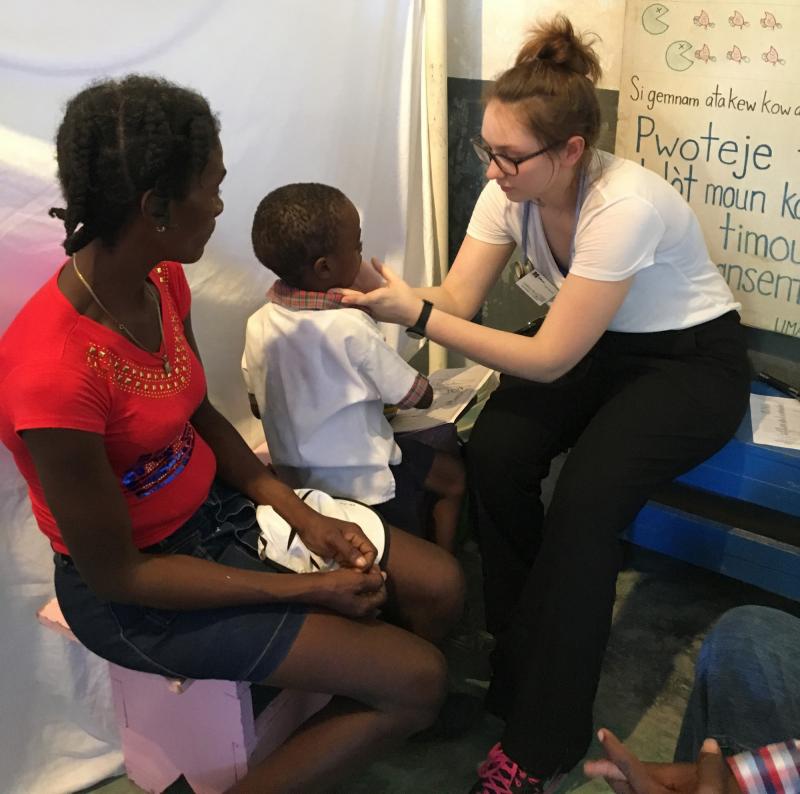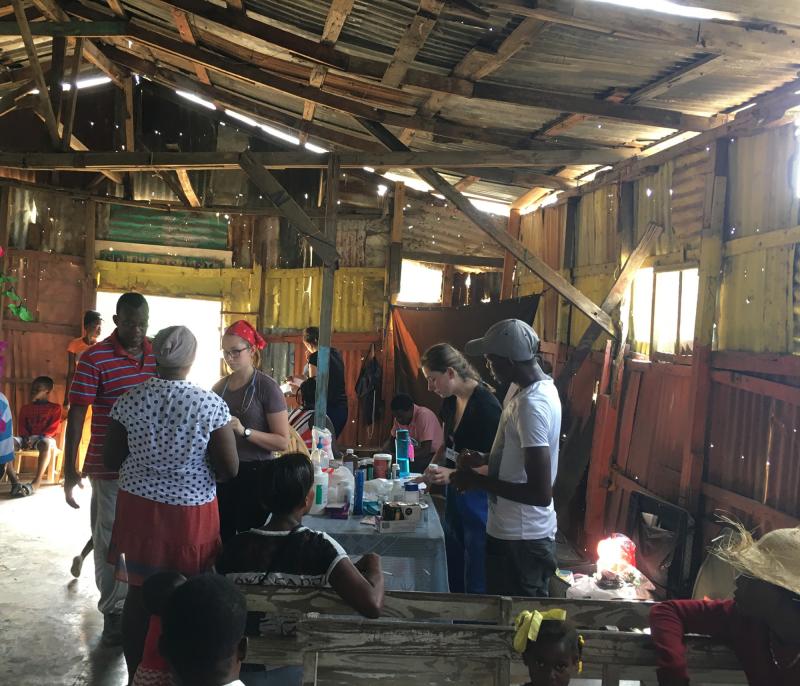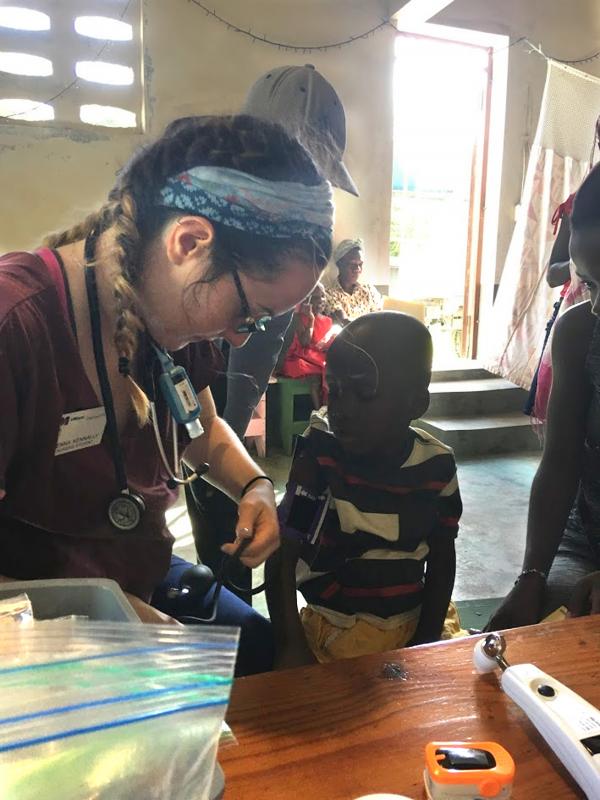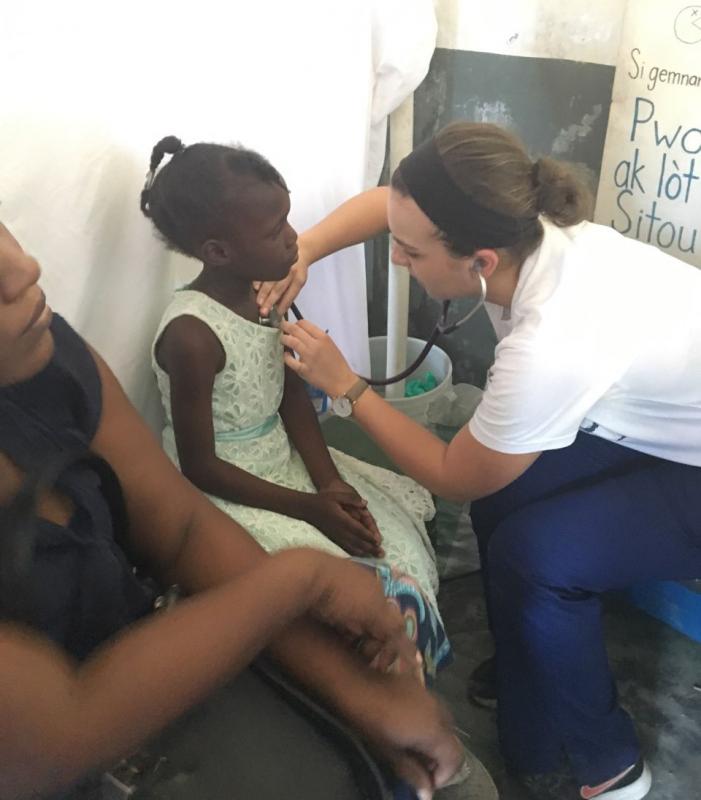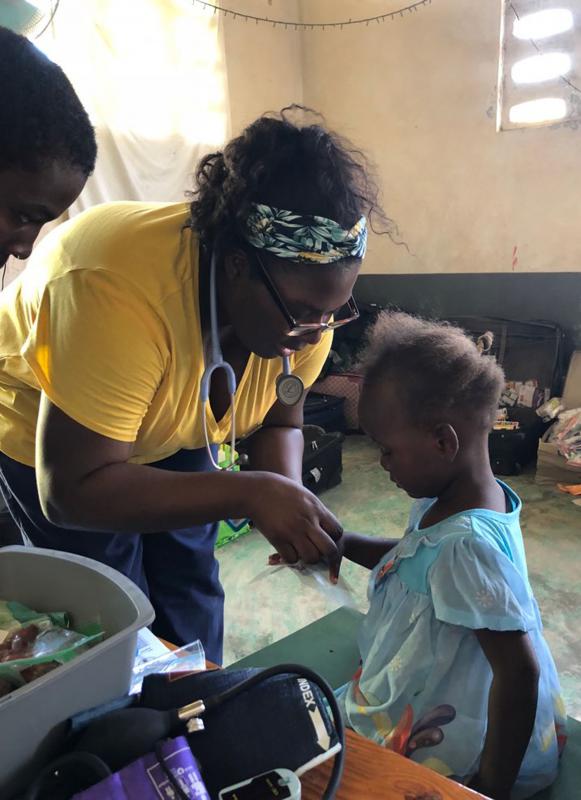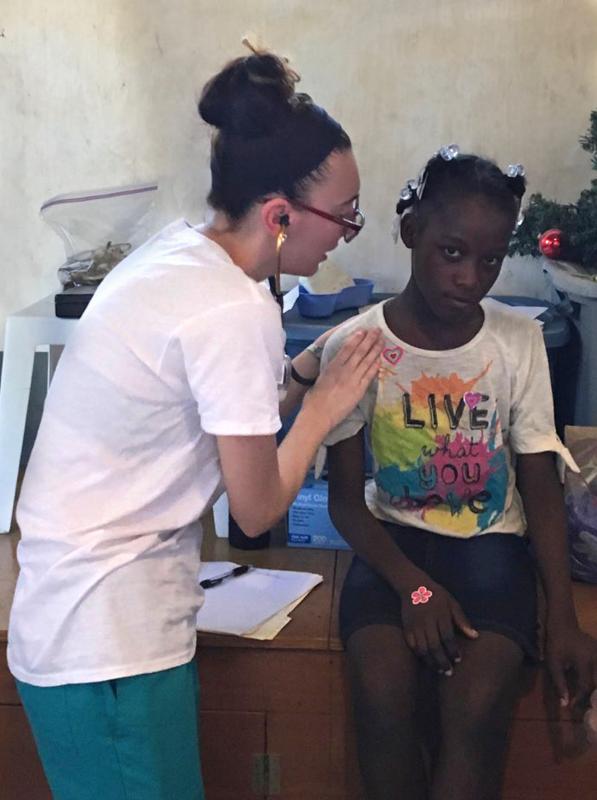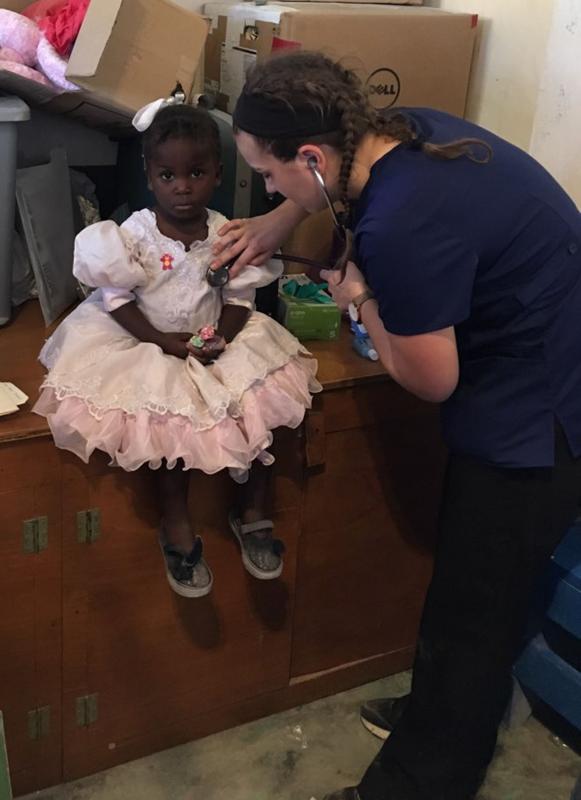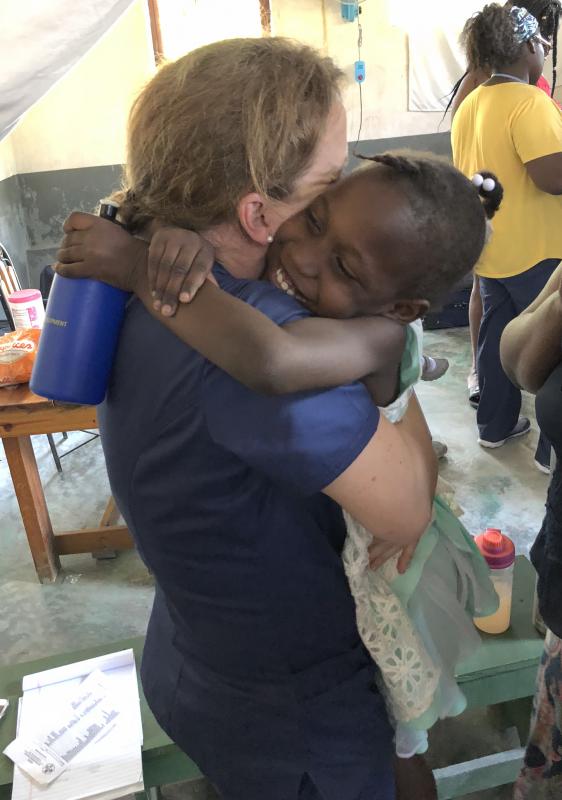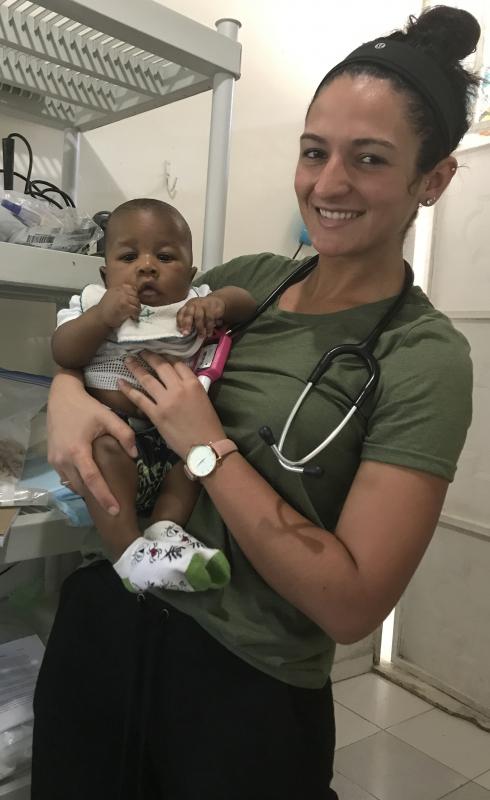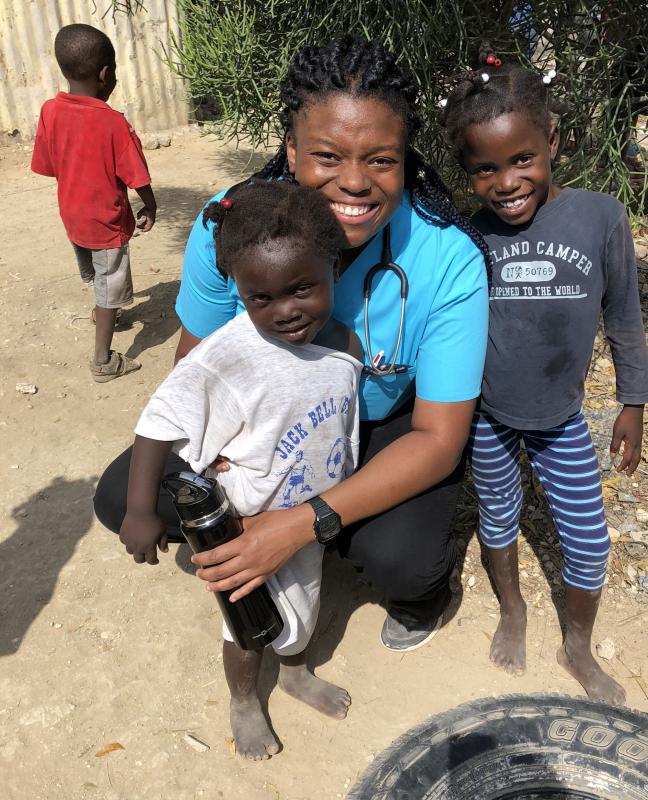Haiti trip inspires, educates UMass Dartmouth nursing students
During her spring break trip, Jenna Kennally sat with a young Haitian boy sleeping in her arms, swatting away flies that had begun attacking an open wound on the boy’s face as she cared for him.
Kennally and her fellow University of Massachusetts Dartmouth nursing students traveled to the impoverished island nation for their experiential nursing class. Students staffed a clinic, and built modern homes for those living in buildings constructed of loose scrap metal.
Now home from their week abroad, students are still processing the emotional realities they learned during the service trip, from inspiration to sadness.
Alexia Reis fought through tears recalling her meeting with a mother and her 4-year-old daughter not showing typical development for her age. The woman’s husband issued an ultimatum — give the child up, or he’s leaving.
“It was one thing learning about the Haitians and how they live and what they go through, but it was another to experience firsthand — to see people right in front of you dealing with those struggles,” Reis said.
She realized she was powerless to help due to the country’s lack of resources, and could only offer advice to the family. Reis left the clinic not knowing if the child would end up in an orphanage.
The eight students have debriefed about the emotional impact of their trip, but it hasn’t been easy. Reverse culture shock is common, and includes a repetitive feeling of guilt about coming home to a country with a multitude of resources.
Ashley Cheetham struggled to return to her normal routine. Even grocery shopping reminded her that the people she met eat only one meal a day.
Ann-Melissa Pognon found her heritage again and gave back to the people of her country. She always goes back to the same quote — “experience is life’s best teacher” — when she feels sad about leaving.
“Just remembering the little things you do adds on to the bigger picture,” Pognon said. “We all feel like we want to go back and that one week wasn’t enough, but that one week was enough for those people and might have saved somebody from something they didn’t know they were going to go through in the coming weeks, so we made a big difference in their lives and our lives.”
The experience also tested the students’ nursing skills when faced with minimal resources. Lacking modern medical technology, Carolyn Dorr said it was all about what a nurse can do with a stethoscope, eyes, and hands.
“I think those are the most appreciative and happiest people and the thing is they have nothing,” Alisha DeMelo said. “They have maybe like one meal a day and yet they still have the biggest smiles on their face. I think it just says something about them and that you can be happy without nothing.”



